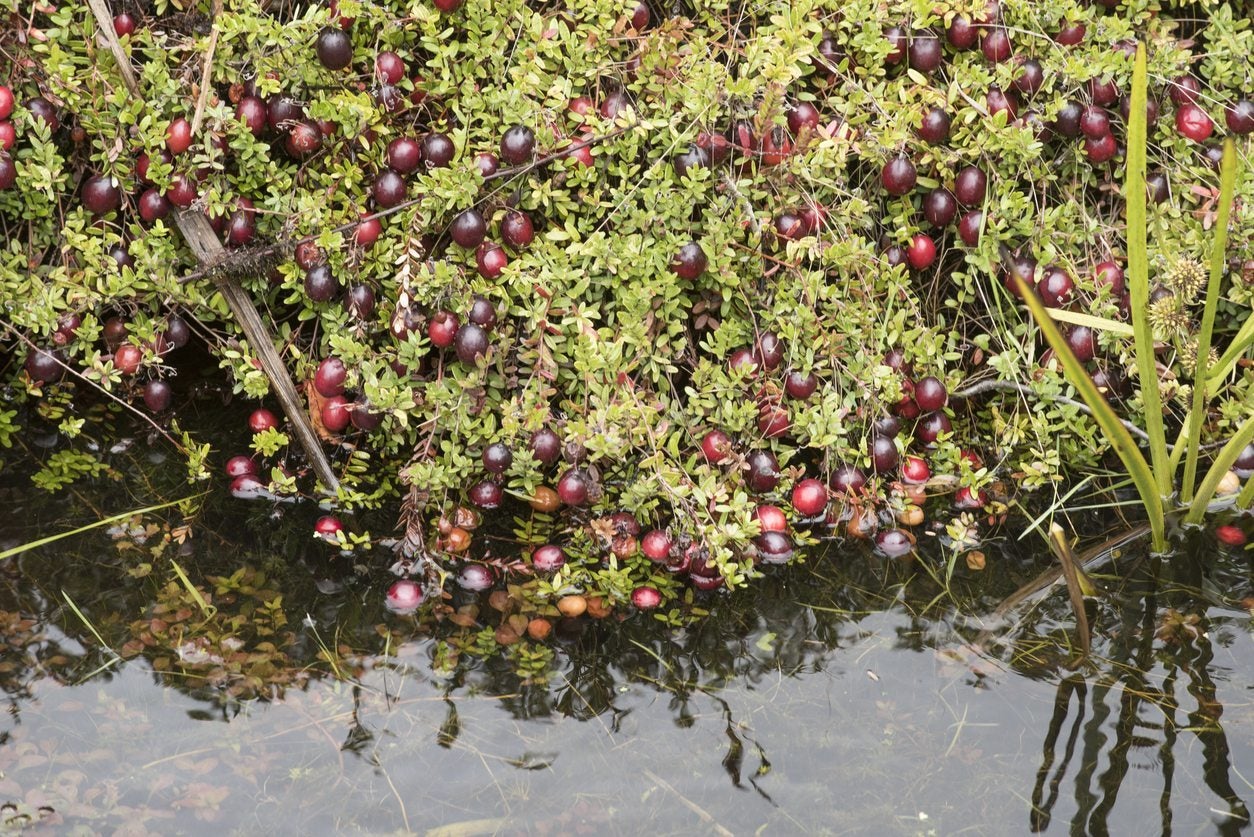
Sign up for the Gardening Know How newsletter today and receive a free copy of our e-book "How to Grow Delicious Tomatoes".
You are now subscribed
Your newsletter sign-up was successful
If you’re a TV watcher, you may have seen commercials with happy cranberry growers talking about their crop with hip waders’ thigh deep in water. I don’t actually watch commercials, but in my mind, I do envision crimson berries growing on bushes that have been submerged. Is this true though? Do cranberries grow underwater? I think a lot of us suppose that cranberries grow in water. Read on to find out how and where do cranberries grow.
What is a Cranberry Bog?
The flooded crop site I have envisioned is called a bog. I guess someone told me that when I was a kid, but what is a cranberry bog? It’s an area of soft, marshy ground, usually near wetlands, an important part of how cranberries grow, but not the entire story.
Where Do Cranberries Grow?
A cranberry bog needs to have acidic peaty soil for fruitful berries. These bogs are found from Massachusetts to New Jersey, Wisconsin, and Quebec, Chile, and primarily in the Pacific Northwest region which includes Oregon, Washington, and British Columbia. So, do cranberries grow underwater? It seems that cranberries in water are integral to their growth but only at certain phases. Cranberries do not grow underwater or in standing water. They grow in these specially constructed low-lying bogs or marshes in acidic soils similar to those required by blueberries.
How Do Cranberries Grow?
While cranberries aren’t grown their entire existence in water, flooding is used for three phases of growth. In the winter, fields are flooded, resulting in a thick covering of ice that protects the developing flower buds against cold temperatures and dry winter winds. Then in the spring, when temperatures warm, the water is pumped out, the plants flower, and fruit is formed. When the fruit is mature and red, the field is often flooded again. Why? Cranberries are harvested in one of two ways, wet harvest or dry harvest. Most cranberries are wet harvested when the field is flooded, but a few are dry harvested with a mechanical picker, to be sold as fresh fruit. When fields are going to be wet harvested, the field is flooded. A giant mechanical eggbeater stirs the water about dislodging the berries. Ripe berries bob to the top and are gathered to be made into juices, preserves, frozen, or any of 1,000 different products including your famous holiday cranberry sauce.
Sign up for the Gardening Know How newsletter today and receive a free copy of our e-book "How to Grow Delicious Tomatoes".

Amy Grant has been gardening for 30 years and writing for 15. A professional chef and caterer, Amy's area of expertise is culinary gardening.
